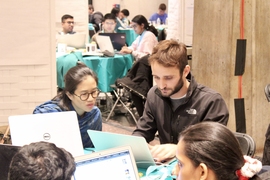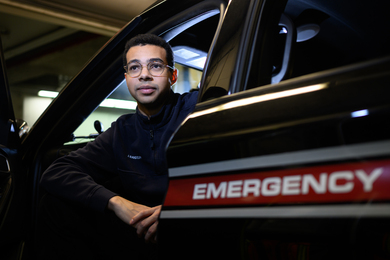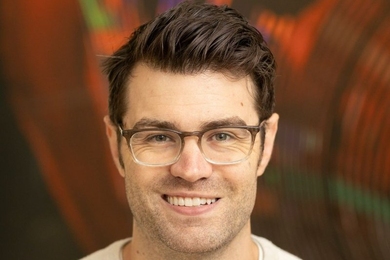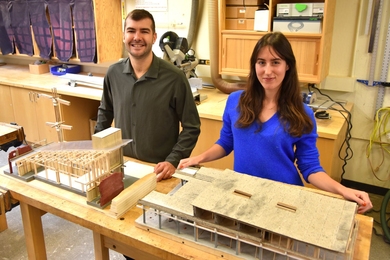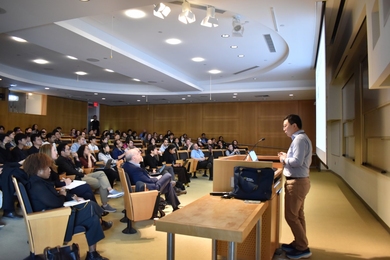Over 175 engineers, advocates, health care experts, parents, and students gathered at the MIT Media Lab April 27–29. It was a weekend hackathon, like so many at MIT, but it contrasted starkly from a typical hackathon in many ways. For one thing, dozens of babies were in attendance — cuddled to chests in baby carriers, toddling around the hackers’ ankles, napping in arms, and nursing. For another, the babies weren’t a coincidence or a concession; you might say they were the guests of honor. The adults were gathered for an unusual purpose, and not just by hackathon standards: to make breast pumping not suck.
In the United States, only 22 percent of babies are exclusively breastfed for the recommended six months. New parents face challenges including stigma, lack of access to education and resources related to breastfeeding and pumping, unfriendly employer policies, unforeseen costs, and racial bias in the health care system.
The first Make the Breast Pump Not Suck Hackathon, in 2014, focused on the technological and physical difficulties of pumping; the basic technology and structure of the standard breast pump hasn’t changed much since its creation in the 1850s. This year’s hackathon, a collaboration between the Media Lab’s Center for Civic Media and the Engagement Lab at Emerson College, set out to address the many complex challenges standing in the way of successful breastfeeding and pumping.
“The first time the Media Lab hosted a breast pump hackathon, we quickly learned the importance of building with, not building for,” says Ethan Zuckerman, head of the Center for Civic Media and a judge for one of this year’s hackathon prizes. Moreover, “as important as involving women who are breastfeeding is understanding parents who don't feel able to breastfeed: people who lack community support, who have jobs that don't provide time to pump. With the support of the Kellogg Foundation, we were able to work with amazing groups in Boston, Michigan, Mississippi, and New Mexico who helped us broaden our community.”
The team’s focus on equity and diversity resulted in a hackathon where some 70 percent of the participants were people of color; of the 29 teams, over two-thirds focused on issues of racial, economic, and social equity in the breastfeeding and pumping experience. Instead of the standard first, second, and third place hackathon prizes, the organizers arranged for 12 prizes that highlighted the diverse experiences and relationships of the participants and their projects.
The Center for Civic Media sponsored the Media for Change Award, to honor the team using participatory media to address systemic gaps in postpartum support. The winning team, led by Kimberly Seals Allers, created an app called Irth (birth, without the B for bias), drawing on her background as a journalist and a woman of color who experienced racial bias in the hospital where she gave birth — something shared by 21 percent of black mothers and 19 percent of Hispanic mothers hospitalized for childbirth, according to the most recent Listening to Mothers survey.
Allers says, “I am on a mission to equalize the experience of pregnancy, birth, and postpartum support in this country. I believe everyone deserves a fair experience in pregnancy, birth, and beyond, and the right to have the information and tools to achieve that.” To that end, Irth collects user experiences filtered by race, ethnicity, sexual orientation, gender identification, income, and more. It also features a content community, providing users with information, tools, and resources based on exactly who they are and what they need. Irth, which has been in development for about seven months, is a project of Allers’ nonprofit, Narrative Nation. The team also included Matt Takane and Yvonne Takane and their baby, Clark; Emily S. Bottis; and Jenny Liu.
Recognizing that no amount of hackathon innovation can overcome many of the core legal and political issues faced by new parents, the organizers also set up a Make Family Leave Policy Not Suck Policy Summit to run concurrently with the hackathon. “Despite the evidence showing the public health benefits of paid leave, including for breastfeeding, in the U.S. it’s a luxury for the few,” says Binta Beard, a health and public policy consultant who helped create an agenda intended to support building relationships and solution-oriented strategies. “Only 14 percent of workers qualify for paid leave, and 25 percent of women return to work within 10 days of delivery.”
Like the hackathon, the summit emphasized the social and racial iniquities endemic to the new parent experience. “A focal point of the summit was elevating the expertise of black, brown, immigrant, and low-wage worker women, creating inventive advocacy strategies to advance paid leave policies throughout the country,” Beard explains.
Media Lab Director Joi Ito tied together the event’s themes in his remarks on Sunday. “Most of the problems we have today are complex and are caused by engineers and designers making products for other people, without understanding the real issues and without involving the people who are in the system in the design process,” he said. “We take a participatory design approach at the Media Lab, so that the people to whom the result matters most can not only participate in the design process, they can also be the designers.”





